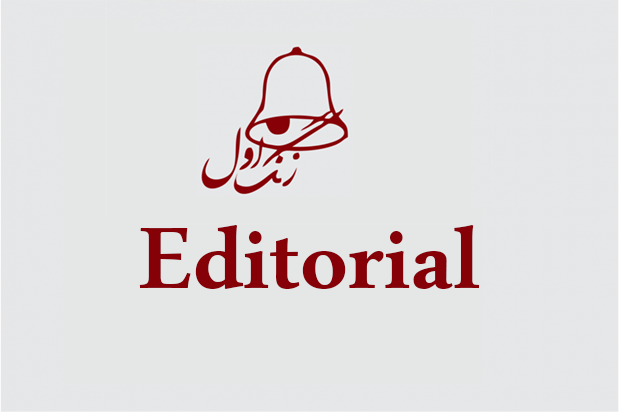The House of Representatives yesterday voted in favor of ten ministerial nominees. They presented their plans before a vote of confidence in the House of Representatives last week. In the coming days, the remaining 13 nominees are scheduled to present their plans to the House of Representatives. This process will probably be completed in another week and a half.
One month ago, President Mohammad Ashraf Ghani introduced the government’s proposed ministers for the new cabinet to the House of Representatives. The new government, based on a political agreement and 50:50 division of independent ministries and directorates between Ghani and Abdullah, took office on May 17 this year. More than six months have passed since the start of this government’s tenure.
The sixth presidential election in 2019 was accompanied by many technical and political challenges. This election, marked by fraud, led Afghanistan down a path where it witnessed the inauguration of two “presidents” in one day, a first in its fledgling political life. The political agreement that was later arrived at between the two contenders claiming victory in this election, as the only possible solution, was meant to reflect the presence of both parties in the halls of power. It was Ghani and Abdullah who divided the posts of ministries, independent departments and provinces, and each took on different positions under the guise of representing the will of the people.
The last two presidential elections, which were marred by fraud, have severely polarized Afghanistan’s political community. The House of Representatives has also been subject to this general, bipolar situation. Some members have entered the institution with rich support, and others, with the support of Abdullah, have relied on the position of representing the people in parliament. Even if we exclude the political, technical and financial support of Ghani and Abdullah in the 2018 parliamentary elections, we cannot deny the impact of the wide-ranging duel between these two political leaders during the 2019 presidential election on the representatives’ leanings towards one or other of these two poles. The stance of MPs at a time when both Ghani and Abdullah considered themselves winners of the election was a clear indication of their influence over this political duel.
The House of Representatives is a mirror image of the political situation in the country. Considering the bipolar nature of the general political situation, it comes as no surprise that the House of Representatives reflects this. However, a significant portion of MPs do not belong to either of these two political poles. Their votes are decisive in cases where contentious decisions are to be made.
That said, representatives close to the president voted in favor of Ghani’s nominees yesterday. Similarly, delegates loyal to the chairman of the Supreme National Reconciliation Council voted in favor of Abdullah’s nominees. A significant portion of the vote was already floating and fluid. The fate of this part of the parliamentary vote was decided in previous months in luxury hotels and guesthouses in Kabul. There was thus no doubt that even the weakest of the ten nominees who submitted their candidacies last week would win the vote of confidence.
The division of loyalties in the House of Representatives between the leaders of these two political poles has seriously called the principle of this institution’s representation of the people into question. The MPs are not appointed or elected by Ghani and Abdullah, for them to be the will of these two people only. They must protect the will of the people. The fact that candidates who have received votes from the House of Representatives belong to either the Ghani or Abdullah faction has nothing to do with people’s preferences.
Members of parliament are free to make their own decisions. The scope of this authority, however, is limited by the needs and expectations of the people. The people of Afghanistan, tired of war and poverty, need efficient programs devoid of slogans, more than anything else. They also need ministers who can eradicate war and poverty and lead their people to lives of excellence and prosperity. Therefore, it is very important that the MPs vote for the programs of the nominees and in the future, according to these programs, ensure that they work and are effective. We must be sure that the “program” is not the basis and criterion in future decisions of the parliament towards other nominees.
It is noteworthy that the representatives’ votes of confidence to the ten nominees for the cabinet also had advantages. They took a step forward to form a cabinet with the approval of ministers nominated by Ghani and Abdullah. Another good thing about this was that no nominee was rejected by the parliament because he belonged to a certain race, religion or language; a problem that has happened many times in the past. Despite these advantages, the penalty for the absence of the “program” in the MPs’ vote for the nominees cannot be compensated. This penalty is very heavy and may remain on the shoulders of the people for years.












